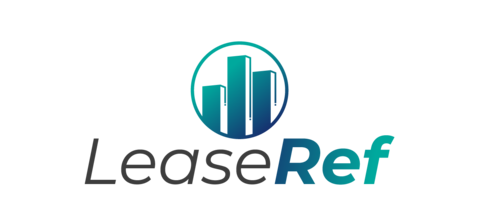Commercial real estate can be a labyrinth of complex terms and types of lease agreements, each serving different needs and scenarios. One such type is the graduated lease, a concept that can be both advantageous and challenging, depending on the specifics of the agreement and the circumstances of the parties involved. This article will delve into the details of graduated leases, breaking down what they are and how they function.
Understanding the Graduated Lease
Also referred to as a graded or step-up lease, this type of lease agreement orchestrates a timeline in which rental payments evolve over the duration of the lease term according to a pre-established schedule.
As opposed to a uniform monthly or annual payment throughout the lease, in a graduated lease the rental payment increases incrementally at predefined intervals. This mechanism introduces an element of dynamism and adaptability to the leasing agreement, which can be beneficial in a variety of scenarios.
To help visualize this concept, consider a 5-year graduated lease agreement in which the rent starts at $10,000 in the first year, then increases by 10% in the second year, and for the remainder of the term increases by 5% annually. The payment structure for this arrangement would look as follows:
| Year | Annual Rent | Increase |
| 1 | $10,000 | – |
| 2 | $11,000 | 10% |
| 3 | $11,550 | 5% |
| 4 | $12,128 | 5% |
| 5 | $12,734 | 5% |
While this example paints a clearer picture, it’s worth noting that graduated leases can accommodate even more complexity, with varying increments, or rates tied to market shifts or cost of living adjustments. Ultimately, the graduated lease serves as a versatile tool that allows landlords and tenants to negotiate terms that cater to their respective financial strategies and predictions.
Pros and Cons of a Graduated Lease
Like any agreement, a graduated lease comes with its distinct set of advantages and potential challenges. For tenants, particularly those of startups or expanding businesses, a graduated lease may offer a lower initial rent, making it easier to manage costs in the early stages. Over time, as the business grows and presumably increases its revenue, it can accommodate higher rent.
Landlords, on the other hand, might find graduated leases advantageous as they can secure long-term tenants while also ensuring that their rental income keeps pace with market trends or cost of living adjustments. Additionally, these leases can help landlords mitigate the risk of rent default by matching a tenant’s payment capacity.
However, graduated leases can also pose certain risks. Tenants, for instance, might find themselves unable to afford the rent in later years if their business does not grow as anticipated. Conversely, landlords might find themselves receiving below-market rent if the area’s property values increase dramatically.
Key Factors to Consider
Entering into a graduated lease agreement requires careful consideration of several key factors. For tenants, it’s essential to realistically evaluate their growth prospects to ensure they can meet future rent increases. Landlords, on the other hand, need to consider the stability of the tenant’s business and the potential for future market growth.
In this context, a more complex graduated lease structure might come into play. For example, the lease could be tied to economic indicators or market rent rates, or it might feature varying increments based on other agreed-upon factors.
Frequently Asked Questions about Graduated Leases
1. Is a graduated lease beneficial for every business? Not necessarily. While a graduated lease can be beneficial for growing businesses expecting an increase in revenue over time, it might not be the best fit for businesses with stable or unpredictable income.
2. How is the rate of increase determined in a graduated lease? The rate of increase in a graduated lease can be a fixed percentage, a flat rate, or tied to an economic indicator or market rents. The specific terms are negotiated and agreed upon by the landlord and tenant.
3. Can the terms of a graduated lease be renegotiated? Typically, the terms of a graduated lease are fixed for the lease term. However, like any contract, they can potentially be renegotiated if both parties agree.
4. What happens if a tenant can’t afford the increased rent in a graduated lease? If a tenant can’t afford the increased rent, they could face eviction for breaching the lease terms. It’s crucial for tenants to realistically assess their ability to afford future rent increases before entering into a graduated lease.
Conclusion
A graduated lease serves as a valuable tool in the commercial real estate world, offering adaptable and dynamic lease agreements that cater to a variety of scenarios. While they offer several benefits, like any contract, they also carry potential risks. Therefore, whether you’re a landlord or tenant, understanding the ins and outs of a graduated lease is key. It’s always wise to consult with a knowledgeable real estate attorney before entering into any lease agreement. In the end, the best lease agreement is one that supports the stability and growth of both parties involved.


![The Role of Estoppel Certificates in CRE [TEMPLATE]](https://www.leaseref.com/wp-content/uploads/2024/11/Three-people-looking-over-estoppel-certificate_500X1000.jpg)
